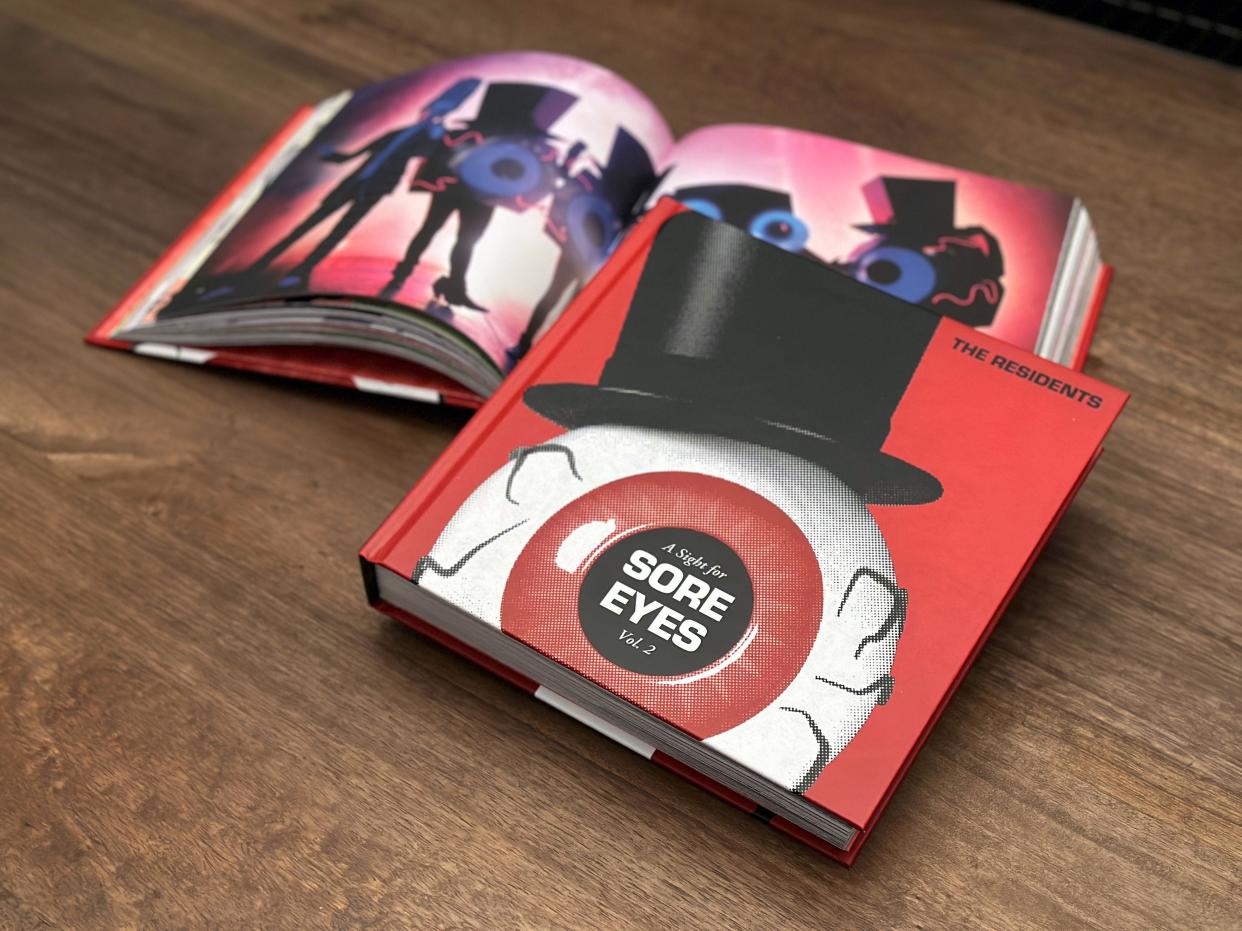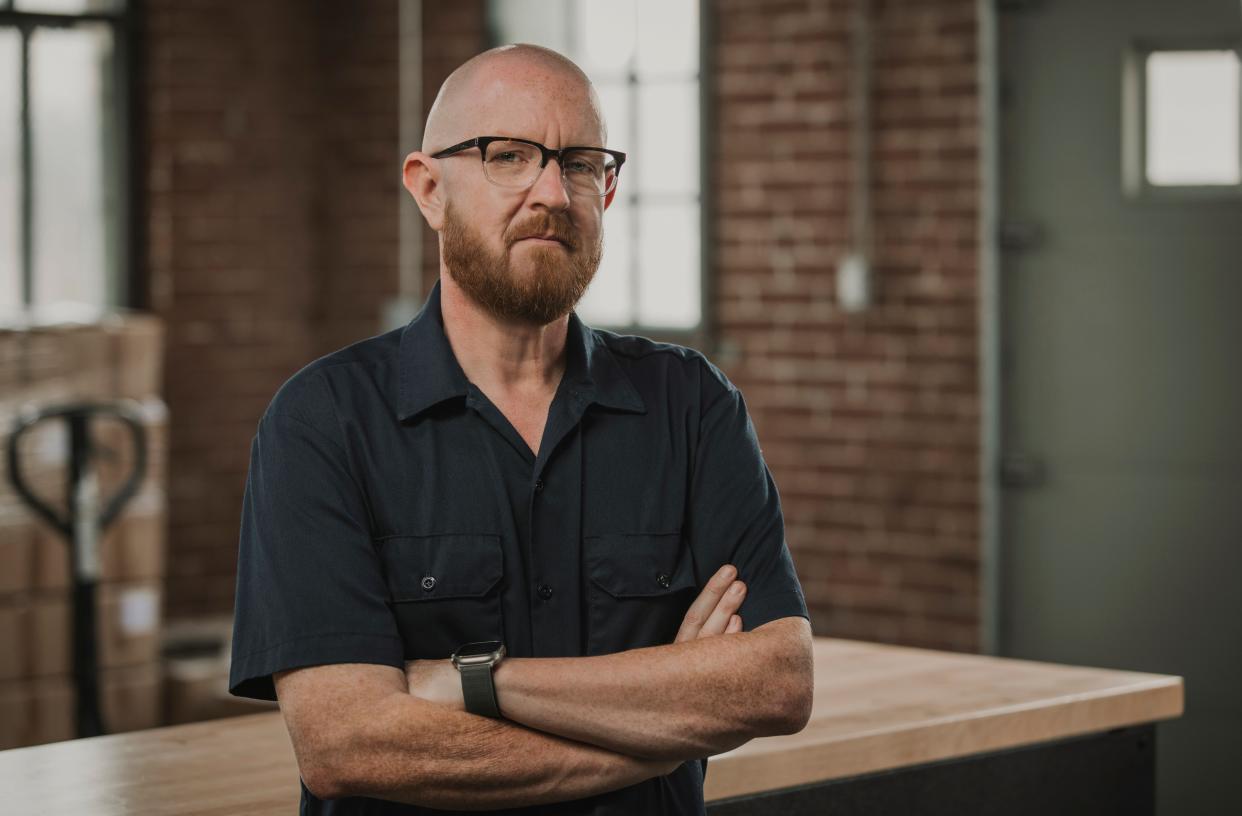Q&A: Local man's publishing company highlights independent rock bands
A Reitz High School graduate is making it his mission to highlight underground bands and music.
Aaron Tanner, 47, is an Evansville graphic designer who has known that he'd be in the visual arts world since high school, when he took journalism classes and worked on the school paper designing the logo and laying out pages.
"That was really my first introduction to using those types of design tools and I discovered that I really liked doing that," he said.
He went to Ivy Tech Community College, where he earned a degree in visual communications. From there, he combined his other love of music into a career where he would design album covers, websites and other visual items for the music industry.
Later, Tanner and a few friends formed Melodic Virtue, an independent publisher "dedicated to preserving and promoting the legacies of underground bands through limited-run coffee table books," according to its website. Since 2004, they've worked with a diverse group of clients including Doug the Pug, Lil Bub, Tanya Donelly, Secret, The Residents, Butthole Surfers and other underground artists and bands.
Several books have been put out for several bands that tell a band's or artist's history with rare and unseen photos and artwork including "The Residents: A Sight For Sore Eyes, Vol. 1 and 2," "Butthole Surfers: What Does Regret Mean?," "Ministry: Prescripture," "Lil Bub: The Earth Years," "Face to Face: 25 years of Social Punk" and more.

"It was the easiest path, (just) definitely not financially," he joked about choosing his field. "But it's just the two things I've always been passionate about and I know really well. So it kind of came naturally."
When he's not designing for his company, he's playing music or working as the primary designer for alternative rock band Ween.
The Courier & Press sat down with Tanner to talk about his design and music career.
When did you get into graphic design and visual art?
The first time I got the design bug was from looking at album covers. I've always really loved music and I've made music off and on since my teen years. As I was listening to some of my favorite bands, I would just study the artwork and wonder how it was made.
That's something that really excited me was that music and visual connection. So I started making flyers and stuff for local bands and started designing cassette album covers and CD covers as well.
You took a break from publishing and decided to get back into it. What brought you back?
I was doing graphic design work in the music industry and I had some local clients, but I was doing a lot of stuff for the music industry. And a lot of that work had dried up because of how volatile the music industry is − sometimes there's money and sometimes there's not, similar to work availability.

I had been hired to create a book for the band The Pixies as a freelance job. It got a lot of national attention and it won national awards and everything, and that happened around that time period. And I was at a crossroads and this thing had just won and had done me pretty well, so decided that I'd just continue to do that. It was born out of desperation a little bit but I also just had a lot of fun creating that book, and would like to continue to pursue doing that.
Since being back, what has been your favorite part about publishing?
With freelance design, it was the situation that the faster I got the job done, the quicker I would get paid. So I would take on a lot of jobs and some of them I didn't feel I was getting to spend enough time with.
Transitioning my business into publishing, I get to spend an entire year making this book the absolute best it can be. I've liked that aspect of it of getting to spend a lot of time on planning and developing. So now my time is dedicated to making it the absolute best it can be rather than just trying to hurry it through and move on to the next thing.
Why did you choose underground bands instead of mainstream bands?
One of the reasons I chose underground bands is because that's been the music that I've been listening to ever since I was like 14 or 15 years old.
Another aspect of it is that you can go into a bookstore or library and see 50-plus books on like The Rolling Stones or Elvis or any of those artists. But the bands I'm working with are really important and have a lot of cultural significance, but are criminally underrepresented. And so I've just sort of taken it upon myself to get some of these bands, some of the attention that I feel that they deserve.
With this field coming so naturally to you, did you always know you'd do this job?
I've always been pretty independent, which my parents can attest to, and I've never liked being told what to do. If someone tells me what to do, I usually go the other direction, just out of spite. Growing up, a lot of people told me that I was a dreamer and shouldn't pursue this as a career, and if anything that just added a lot more fuel to the fire and made me dig my heels a little deeper to prove them wrong.
How do you get started on your projects?
Projects usually start with one book somewhat leading to another book and I'll interview notable people for the books. We'll have these established relationships with artists and think about their catalog of work which we think about having a book so we'll reach to them.
After discussions and agreements, we do a deep dive into their catalog of work and compare/contrast all of their artwork to see what is the common theme within it. That's usually just the visual direction for the piece because I always want the book to look like it's just part of their discography.
This article originally appeared on Evansville Courier & Press: Aaron Tanner talks about Melodic Virtue, an independent publisher
